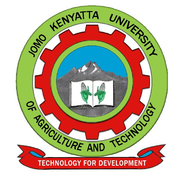
W1-2-60-1-6
JOMO KENYATTA UNIVERSITY
OF
AGRICULTURE AND TECHNOLOGY
University Examinations 2014/2015
SECOND YEAR SECOND SEMESTER EXAMINATION FOR
THE DEGREE OF BACHELOR OF DEVELOPMENT STUDIES
HSD 2212: RURAL AND URBAN SOCIOLOGY
DATE: AUGUST 2014 TIME: 2 HOURS
INSTRUCTIONS: ANSWER QUESTION ONE (COMPULSORY) AND ANY OTHER TWO QUESTIONS
Question One (30 Marks)
Urban and regional politics are changing rapidly. Urban sociology has responded, in its accustomed fashion, by reconsidering its analysis in the light of new political practices. In Africa, local governments make decisions which affect life in cities and at the same time, sections of the populations of those cities. Often it is difficult to separate clearly what is the effect of local, that of national, international, agencies and indeed the proper competencies of each is a centuries – old source of disputes in different African countries. Understanding politics is therefore an essential aspect of a satisfactory urban sociology.
Required:
a) (i) What is urban politics? (2 Marks)
(ii) Local state agencies make decisions which affect life in cities and the sections of the populations of those cities. Give some of the areas in which they attempt to influence local governments. (4 Marks)
(iii) There are four functions or purposes of local state. Name them. (4 Marks)
(iv) Each of these local state purposes in part (iii) above contains internal tensions which emit political dilemmas. Highlight any fifteen of them. (15 Marks)
b) Discuss the relationship between housing and social movements in cities. (5 Marks)
Question Two (20 Marks)
a) The promise of urban sociology is to offer a window through which forms of contemporary economic, cultural and political change can be examined. Give any eight topics discussed and themes examined within urban sociology. (8 Marks)
b) Challenges of slums are many. State and explain any six of them. (12 Marks)
Question Three (20 Marks)
a) The concepts problem analysis and decision making are said to be completely separate from one another. Give the differences between these two concepts. (13 Marks)
b) Community decision making is based on shared commitment to achieving concrete improvement in child, family and neighbourhood conditions, and to building local capacity and accountability to sustain those results. Mention seven instances when community decision making is said to have worked best. (7 Marks)
Question Four (20 Marks)
a) Explain the difference between a sociologist’s and a lay person understanding of a social institution. (10 Marks)
b) Describe five functions of rural society. (10 Marks)